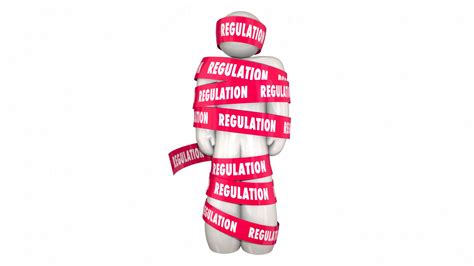“We should favor innovation and freedom over regulation.” -George Allen

Innovation and freedom go hand and hand in an economic sense; when entrepreneurs have freedom and flexibility they are able to change market spaces, and put new products to market faster. Government regulation slows growth and can even price new businesses and products out of a market space before they have a chance to succeed. Government regulates an industry or business with additional costs and added steps to the process of getting a product or idea implemented into a market space; these extra steps slow down innovation, and can even stop it dead in its tracks.
We emphasize government regulation as the topic here because markets generally self regulate in free market economies. This type of self regulation comes about because of the mutual benefit policies that free market principles are founded upon. In a free market transactions only happen with that mutual consent; this transaction has to, by default, have some form of self regulation to ensure the transaction is beneficial to both parties.
Government regulation is instilled in economic policies to “ensure” that a business or entrepreneur does not damage or take advantage of a participating party. Governments will argue that regulations are needed for protection. The data does show that when a market space is heavily regulated big players have the luxury of innovation; whereas new players attempting to enter that space are either unable to or have to over extend their budget to enter the market.
We need freedom to innovate. You should be able to compete with a large cooperation without needing the large pocket book to compete. Government regulations being pushed by these corporations to keep out new competition will only lead to stagnation. True self regulation of a market only leads to mutual benefits for all parties involved.




